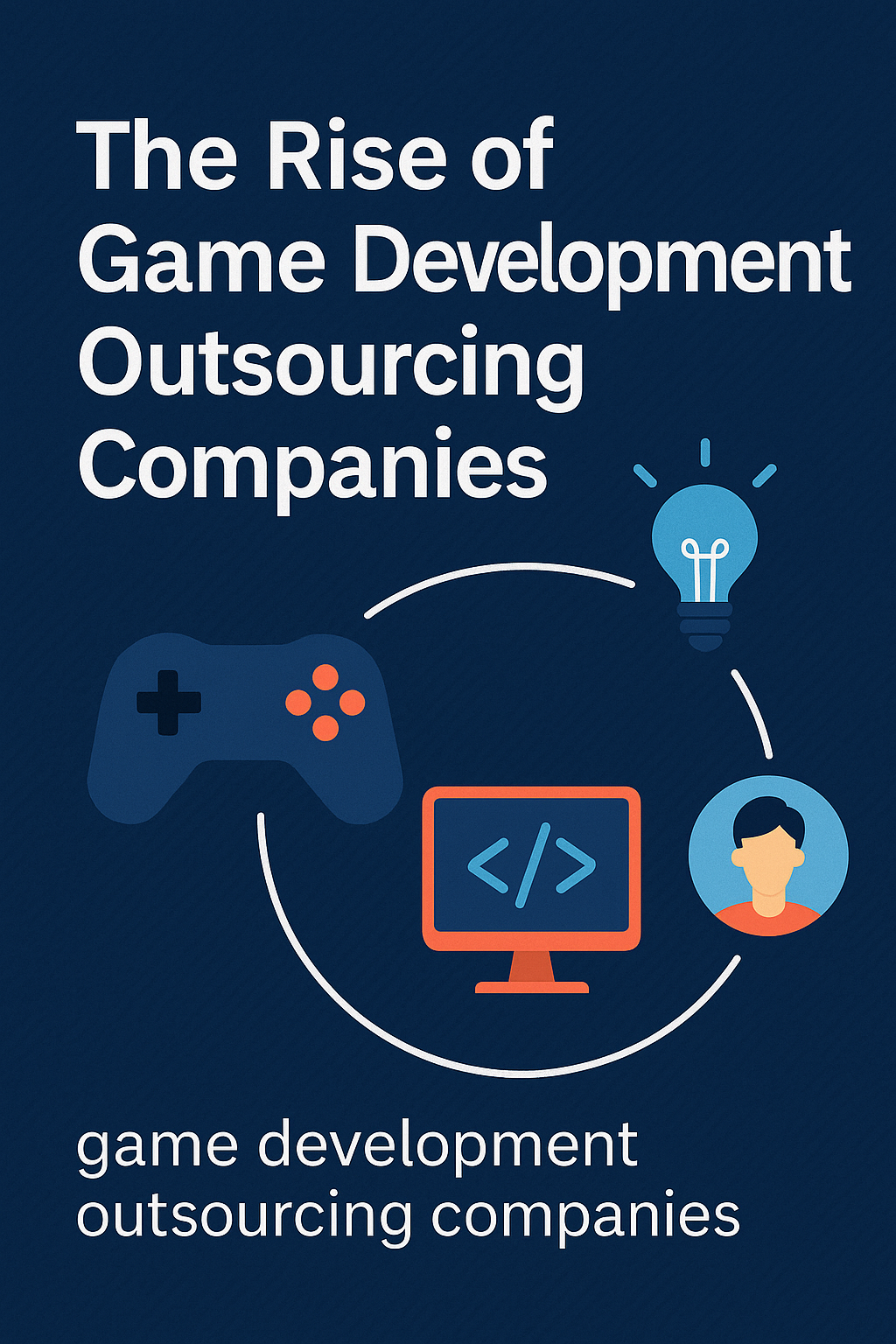The video game industry is one of the fastest-growing entertainment sectors in the world. With millions of players across platforms—from mobile and console to VR and cloud gaming—the demand for high-quality games continues to rise. However, creating a game requires a complex blend of art, code, design, and storytelling, often demanding large teams and substantial budgets. This is why more studios are turning to game development outsourcing companies to balance quality, cost, and efficiency.
Why Studios Outsource Game Development
Outsourcing in game development is not just a cost-cutting measure—it’s a strategic choice. Modern studios face tight deadlines, fluctuating workloads, and the constant need for innovation. By collaborating with specialized outsourcing partners, studios gain access to experienced professionals who handle tasks such as 3D modeling, animation, concept art, programming, and testing.
For example, indie developers might outsource character animation or UI design to professionals overseas, while AAA studios may delegate specific parts of production—like level design or QA testing—to external teams. This flexibility enables developers to focus on their core vision while ensuring the technical and artistic details are handled by experts.
Advantages of Working with Game Development Outsourcing Companies
- Cost Efficiency:
Hiring and maintaining a large in-house team can be expensive, especially for short-term projects. Outsourcing allows studios to save money on recruitment, training, and infrastructure while paying only for the services they need. - Access to Global Talent:
The gaming industry thrives on creativity and technical expertise. Outsourcing opens the door to a worldwide network of artists, developers, and engineers who bring unique perspectives and diverse skills to the table. - Scalability and Flexibility:
Game development cycles are unpredictable. Sometimes you need to scale your team up quickly to meet a release deadline. With outsourcing, you can expand or reduce the workforce as required—without long-term commitments. - Faster Time to Market:
Parallel development between in-house and external teams can dramatically shorten production time. This advantage helps studios stay competitive in an industry where timing often determines success. - Focus on Core Competencies:
Outsourcing allows internal teams to focus on creative direction, storytelling, and gameplay design while technical or repetitive tasks are managed externally.
Types of Game Development Outsourcing
Full-cycle outsourcing: Some game development outsourcing companies offer complete solutions—from concept art and design to coding, testing, and post-release support. This is ideal for startups or studios that lack in-house technical expertise.
Co-development: In this model, external teams collaborate directly with internal developers. It’s common among mid-sized and AAA studios that need extra support during peak production phases.
Art and Asset Outsourcing: Many studios outsource only visual production—2D/3D art, environment modeling, rigging, and animation. Specialized art studios deliver polished assets that fit seamlessly into the game world.
Quality Assurance (QA): Testing is a crucial but time-consuming part of development. Outsourcing QA ensures that games are thoroughly tested on various devices and platforms, catching bugs early and improving player experience.
Choosing the Right Outsourcing Partner
Selecting the right partner can make or break a project. Studios should evaluate potential vendors based on technical expertise, portfolio quality, communication skills, and security practices. Clear contracts, milestones, and communication channels are essential to avoid misunderstandings and maintain creative alignment.
Transparency also matters—both sides must understand each other’s workflows, pipelines, and expectations. Many successful partnerships involve frequent updates, shared project management tools, and collaborative feedback loops.
Challenges and How to Overcome Them
Despite its benefits, outsourcing can present challenges such as time-zone differences, cultural barriers, and data security risks. To overcome these issues, studios often establish dedicated communication protocols, use secure file-sharing systems, and schedule overlapping work hours for real-time collaboration.
Moreover, maintaining consistent artistic and technical quality requires careful onboarding and documentation. Leading game development outsourcing companies provide style guides, prototypes, and review cycles to ensure seamless integration with in-house teams.
The Future of Outsourced Game Development
As technology evolves, outsourcing will continue to play a key role in shaping the gaming landscape. With the rise of AI-driven tools, cloud collaboration, and real-time engines like Unreal and Unity, distributed teams can now work more efficiently than ever.
In the coming years, outsourcing won’t just be a tactical decision—it will become a cornerstone of how modern games are made. From indie developers to global studios, everyone stands to gain from a well-chosen partnership that combines creativity, skill, and innovation.
